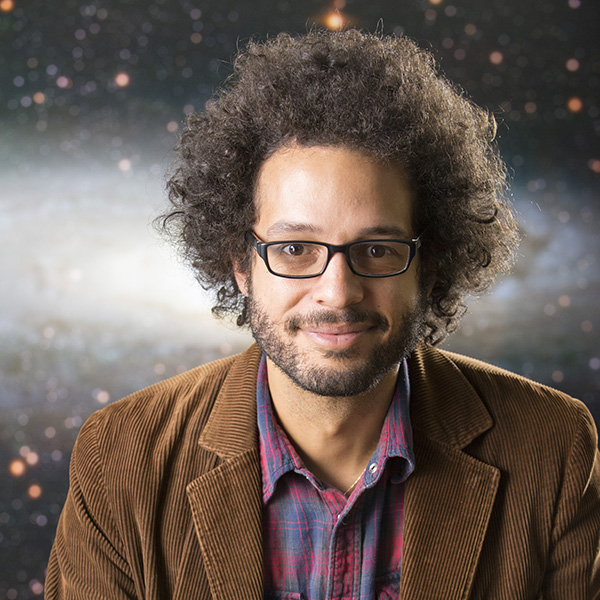Science and Mathematics
Deeply Uncertain: Using AI to Disentangle Signals in Cosmological Probes for Next-Generation Experiments
February 25, 2021 at 3:30pm – 4:45pm EST
Virtual (See event details)
This event has already occurred. The information may no longer be valid.

The Department of Physics in the College of Arts and Sciences is honored to welcome Dr. Brian Nord to present their weekly virtual colloquia. Dr. Nord is an associate professor at the University of Chicago, and he works on applying advanced algorithms (read: AI) astronomy and physics problems. He also works for equity and inclusion in science, so that one day our diversity will be representational. He works to engage with a variety of communities to discuss these ideas.
Abstract: The earliest light in the universe, the cosmic microwave background (CMB) was released from a cauldron of plasma just before the universe cooled enough to begin forming stars. Long-buried clues to the universe’s origin are encoded in the tapestry of CMB images. If they exist, primordial gravitational waves would leave tell-tale traces of “inflation” in these images. But, how do we disentangle these faint signals from confounding patterns imprinted by the likes of gravitational lensing and Galactic foreground emission? Current- and next-generation cosmic surveys experiments will have unprecedentedly low noise and produce commensurately large data. With the opportunities of this data, come new challenges — if our algorithms are prepared to confront them. Conventional modeling techniques are known to be wholly insufficient, but methods at the intersection of artificial intelligence (AI) and statistics offer hope for new constraints and even discovery in these unprecedentedly complex data sets.
Dr. Nord will discuss techniques in deep learning that can help distinguish key features in CMB images that may help uncover secrets of the early universe. However, we must exercise caution in the development and deployment of AI — both in science and society. We do not yet have appropriate mechanisms for managing uncertainty and bias, which have potential to compromise our science and disenfranchise our fellow citizens.
This event was published on February 19, 2021.
Event Details
- Category
- Science and Mathematics
- Type
- Talks
- Region
- Virtual
- Open to
- Alumni,
- Current Students,
- Faculty
- Organizer
- CAS-Department of Physics
- Contact
- Yudaisy Salomon Sargenton
phyadmin@syr.edu
3154433901
- Accessibility
- Contact Yudaisy Salomon Sargenton to request accommodations
